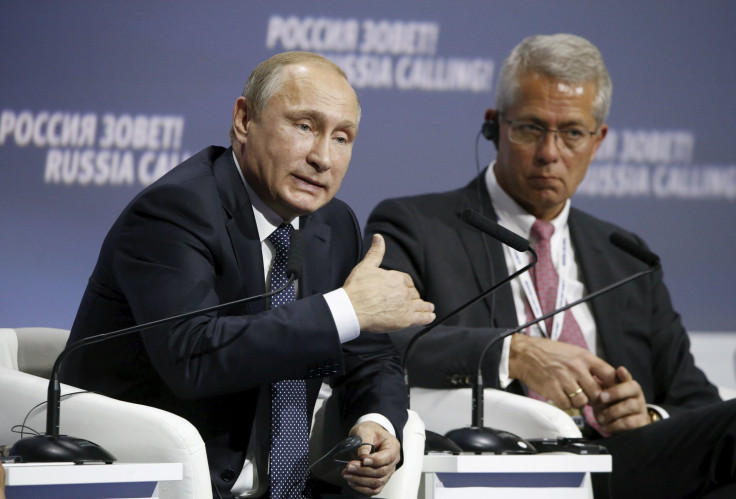Russia Running Out Of Money? Finance Minister Says Reserve Fund Could Be Drained In 2016

Next year could be a tight budget year for Russia. The country’s Finance Minister said Russia’s Reserve Fund could be empty by next year due to low global oil prices, Russian news agency Tass reported Tuesday.
"Our reserves volume (in 2015) will decrease by approximately 2.6 trillion rubles ($40.85 billion) - more than half,” said Finance Minister Anton Siluanov. “This means that 2016 is the last year when we are able to spend our reserves that way. After that we will not have such resources.”
Russia’s Reserve Fund has been the main source for filling the country’s budget deficit. The country’s economy has been hit hard with low oil prices and sanctions imposed by Western governments following Russia’s annexation of Crimea from Ukraine in March 2014.
At the start of 2015, Russia’s Reserve Fund accounted for 6.7 percent of the country’s gross domestic product, but by the end of 2016, it was predicted the fund would account for only 1.3 percent. Russia expects a $34.9 billion budget deficit in 2016, according to Tass.
With the rise in oil prices and the growth of Russia’s economy in the 2000s, the country created two funds to set aside a portion of oil profits. The second fund, the National Welfare Fund, has largely been used to support the country’s infrastructure, the Associated Press reported. With oil prices hovering below $50 a barrel (from a high of over $100 last June), Siluanov has warned the Russian economy could face a budget gap of over $14 billion in 2016.
“If the current oil prices and exchange rates remain the same -- and the current oil price is at around $44 per barrels for Urals, while the ruble exchange rate is about 62 rubles to the dollar -- we can fall 900 billon rubles ($14.12 billion) short,” he said. “We really face such risks.”
Siluanov said in July he wanted to add to the Reserve Fund if oil prices made a recovery, underscoring that stability was linked to the fund, CNBC reported.
The World Bank’s low-range forecast for 2015 has Russia’s economy contracting by 4.3 percent with a recovery possible in 2016. Russia’s budget for 2016 has been pegged to oil prices at $50 a barrel.
© Copyright IBTimes 2024. All rights reserved.






















